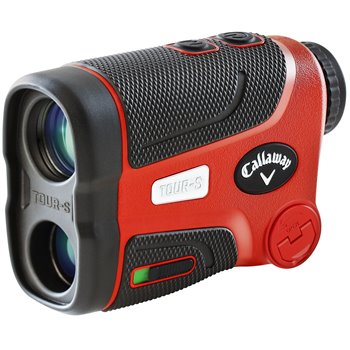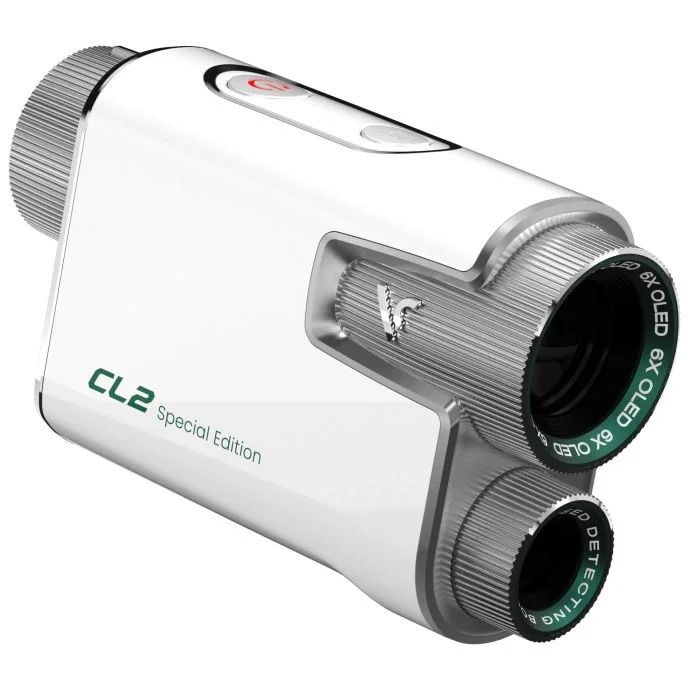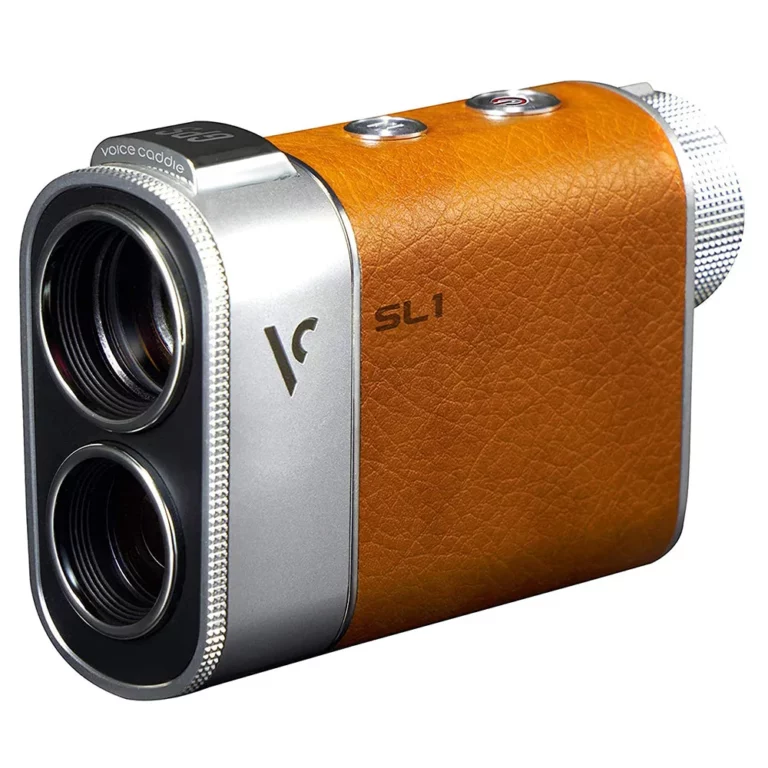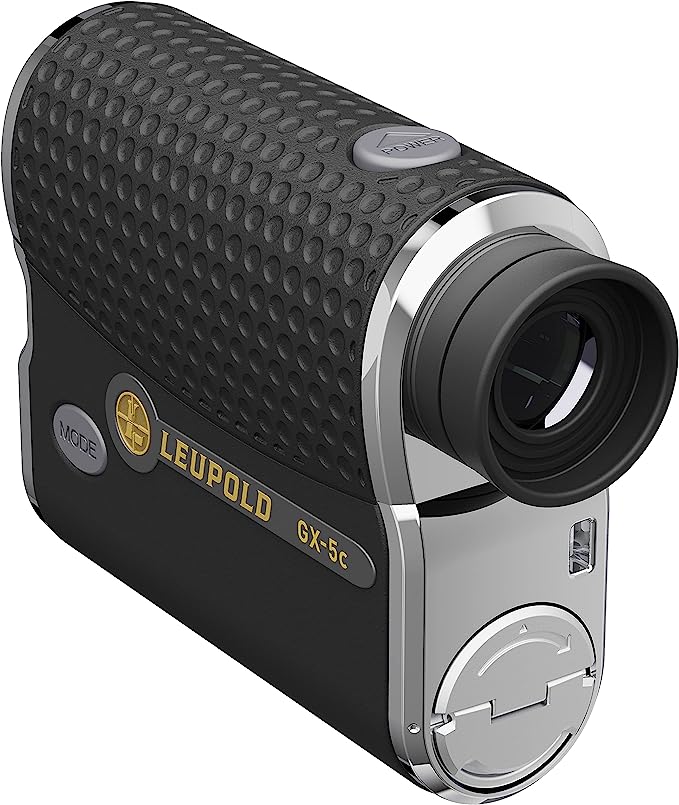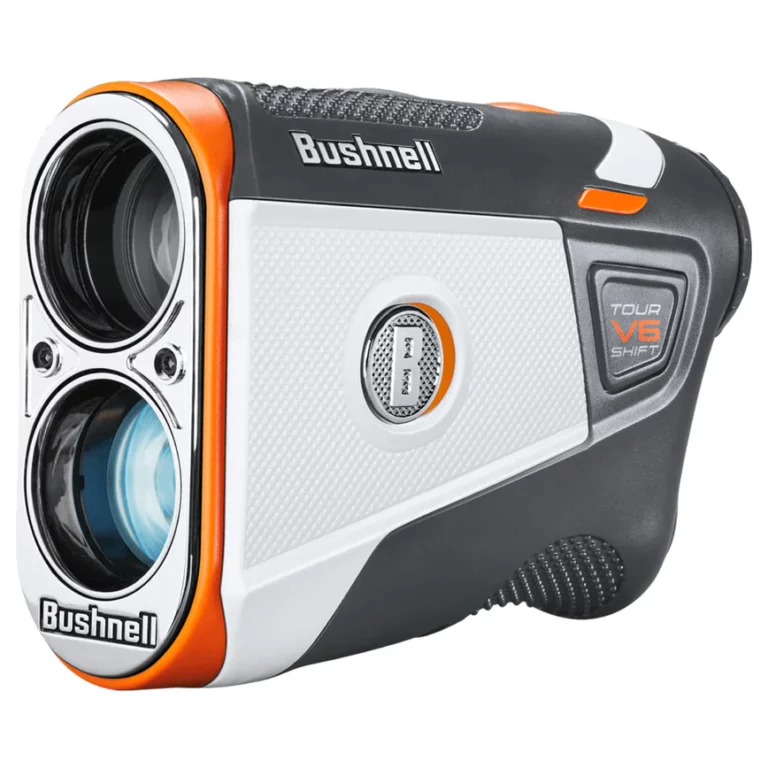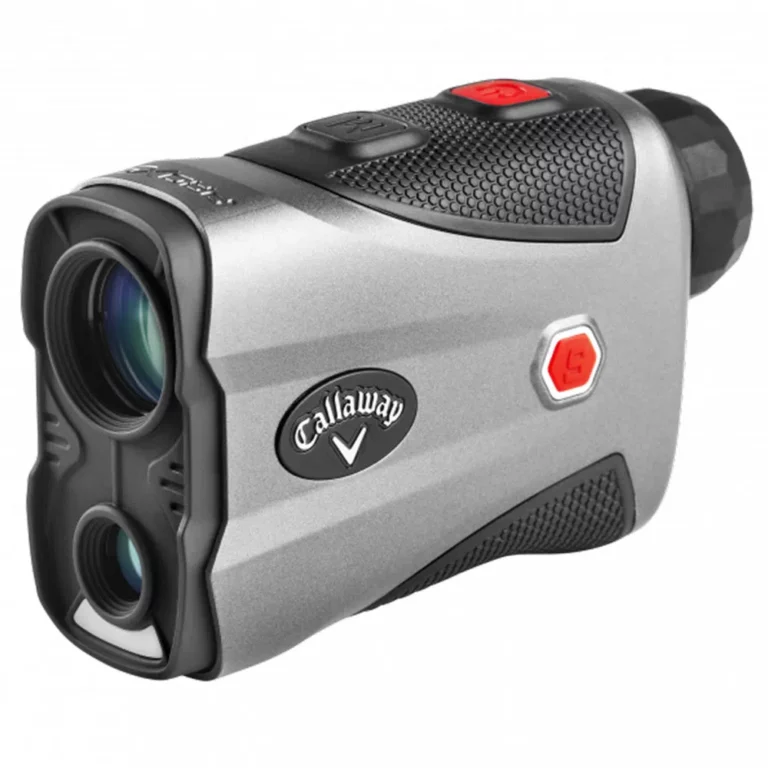Bushnell is the #1 rangefinder on the PGA Tour. The Bushnell Pro X3 rangefinder takes this to a new level.
The Bushnell Pro X3 rangefinder features temperature and altitude along with Bushnell’s patented Slope to deliver extraordinarily precise distances at a range of up to 600 yards.
It is generally regarded as the best pure rangefinder with slope on the market.
Some of the links in this post are affiliate links. This means that if you click on the link and purchase the item, I may receive an affiliate commission at no extra cost to you. All opinions remain my own.
How To Choose The Best Golf Rangefinder
If you need help figuring out which golf rangefinder is right for you, read our in-depth article How To Choose The Best Golf Rangefinder.
It will help you understand what rangefinder features are available, how they work, how you can identify what type of rangefinder you need, and ultimately how to choose the best golf rangefinder for yourself.
How Laser Rangefinders Work
A laser rangefinder is a device that uses laser technology to measure distance. By bouncing a laser off of an object and measuring the time it takes for the laser to return, the rangefinder can calculate the distance to the object.
See our post How Golf Rangefinders Work for an in-depth technical explanation for every component and feature of a golf rangefinder.
TECHNICAL EXPLANATION OF HOW A LASER RANGEFINDER WORKS The laser rangefinder works by sending out a laser pulse and measuring the time it takes for the laser to bounce back off the object. The laser rangefinder then uses the formula: Distance = (Speed of Light * Time) / 2 to calculate the distance to the object. The speed of light is a constant, so by knowing the time it takes for the laser to bounce back, we can calculate the distance.
How Slope Functionality Works
Slope compensates for the elevation change between you and the flagstick.
For example, let’s say you are standing on a hill and looking down at the flagstick. The laser rangefinder will give you the distance to the flagstick, but it will also take into account the fact that you are standing on a hill.
This is where slope comes in. Slope will give you the adjusted distance to the flagstick, taking into account the elevation change.
How Much Does the Bushnell Pro X3 Rangefinder Cost?
The Bushnell Pro X3 rangefinder retails for $599.
Bushnell Pro X3 Rangefinder Overview
The Bushnell Pro X3 rangefinder is their top-of-the-line laser rangefinder with slope. It include...
The Bushnell Pro X3 rangefinder has the following features:
- Slope with “Elements†Compensated Distances with Adjustable Home Elevation
- Dual Display
- Patented Locking Slope-Switch Technology
- Patented PinSeeker with Visual JOLT
- Integrated BITE Magnetic Cart Mount
- IPX7 Fully Waterproof
- Rubber Armored Metal Housing
- 600-Yard Range to a Flag
- 7X Magnification
- Bluetooth Connectivity to Mobile App
How the Bushnell Pro X3 Compares To The Competition
Most of the rangefinders with slope all have similar features. You will find an external slope switch, pin assist technology, and likely OLED optics.
Here’s what sets the Bushnell Pro X3 rangefinder apart from the competition:
Bushnell Pro X3 Rangefinder Features
The Bushnell Pro X3 rangefinder offers a premium experience. The focus is all on quality and Bushnell made sure that the core functionality in this unit is impeccable.
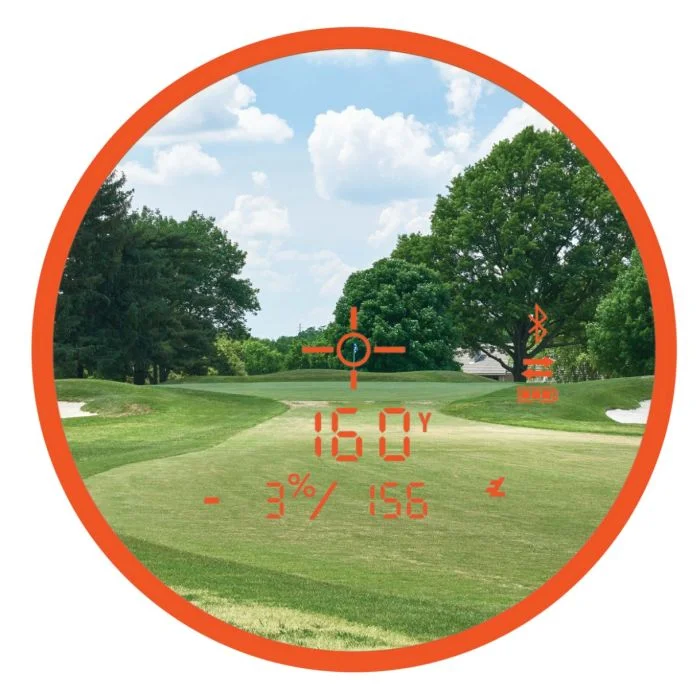
Slope with Elements
Slope with “Elements” takes into account elevation change, temperature, and altitude for the most precise compensated distances
Adjusted Home Elevation
Adjusted home elevation allows you to put in your home elevation to reflect the Slope with Elements distances where you play most
PinSeeker with Visual Jolt
The Bushnell Pro X3’s PinSeeker feature is a godsend for any golfer. With it, you’ll always know when you’ve hit the pin.
Once activated, the PinSeeker will emit a red beam of light towards the flagstick. If the flagstick is in range, the beam will reflect off the flagstick and back into the rangefinder.
The visual JOLT feature will then provide visual and vibration cues to let you know that the flagstick has been targeted.
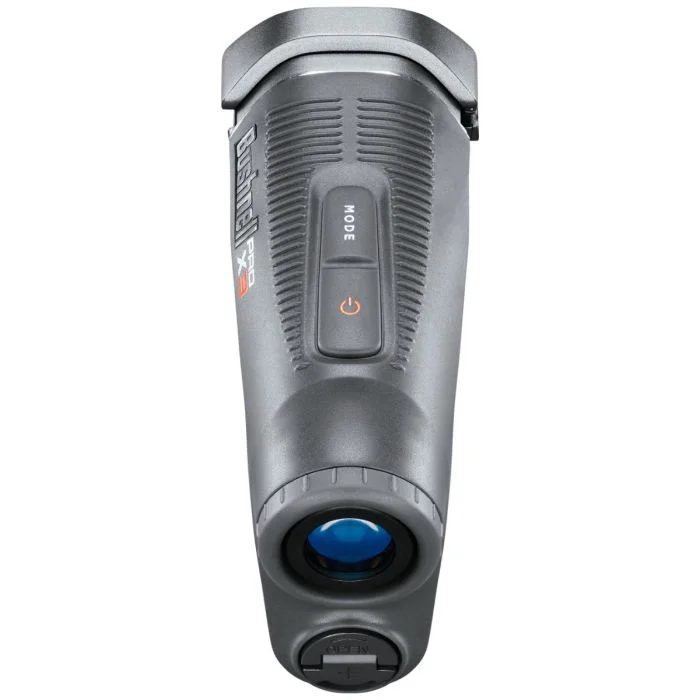
The ring around the flag on the Bushnell Pro X3 rangefinder’s screen will actually flash red and the unit will provide vibrating pulses that you feel when the laser locks in on the pin.
This makes it easy to know when you’ve hit your target, and it takes all the guesswork out of wondering if you locked onto the flag. It is a great feature–especially if you have encountered rangefinders that make it difficult to tell when you have actually locked onto the pin.
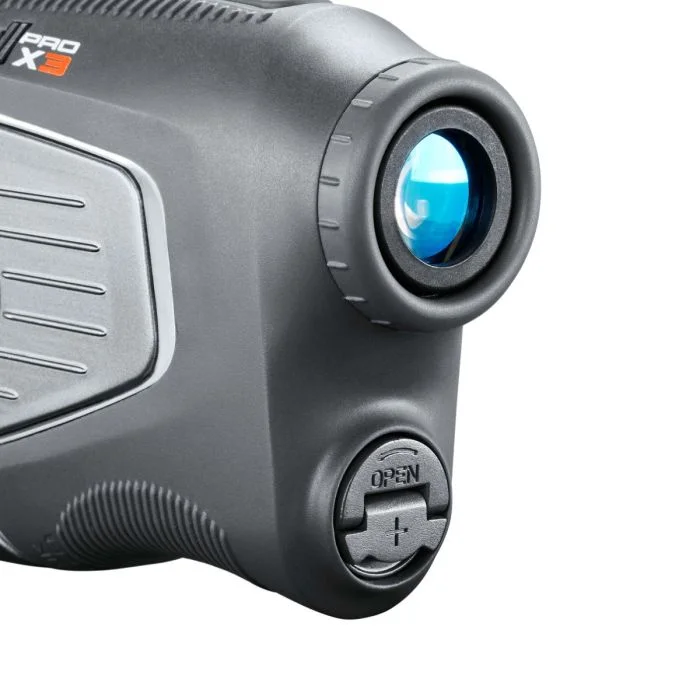
Dual-Display Viewfinder
Allows you to easily toggle between the bright red or crisp black display settings based on lighting conditions and your personal preferences.
Superior Optics
Features industry-leading 7X magnification making it easier to measure objects in the distance.
BITE Magnet
Integrated BITE magnetic technology makes attaching the Pro X3 right to a cart bar easy.
This means you can securely attach it to a cart for easy use or even golf iron club heads!
IPX7 Weather Resistant
The Bushnell Pro X3 rangefinder has an IPX7 rating which indicates that it provides protection against against immersion. The device can actually be temporarily submerged in water.
This is the highest level of protection against rain or humidity on any rangefinder on the market
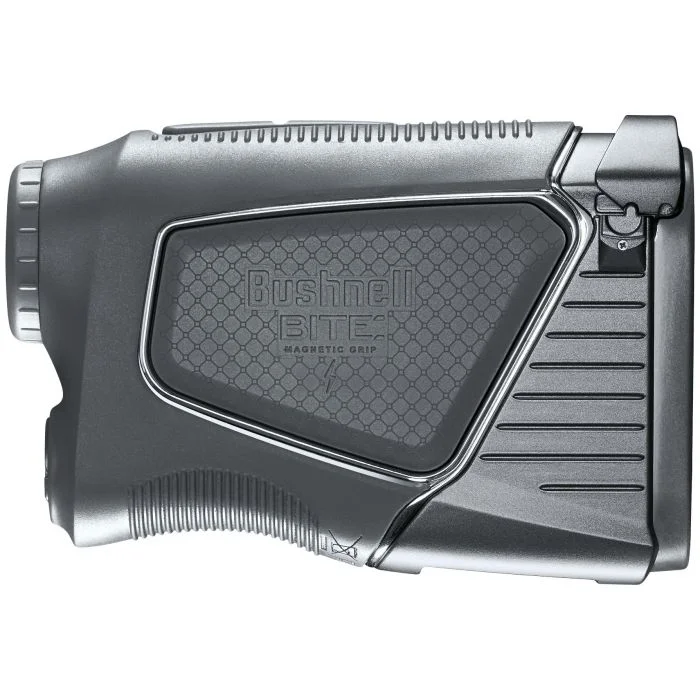
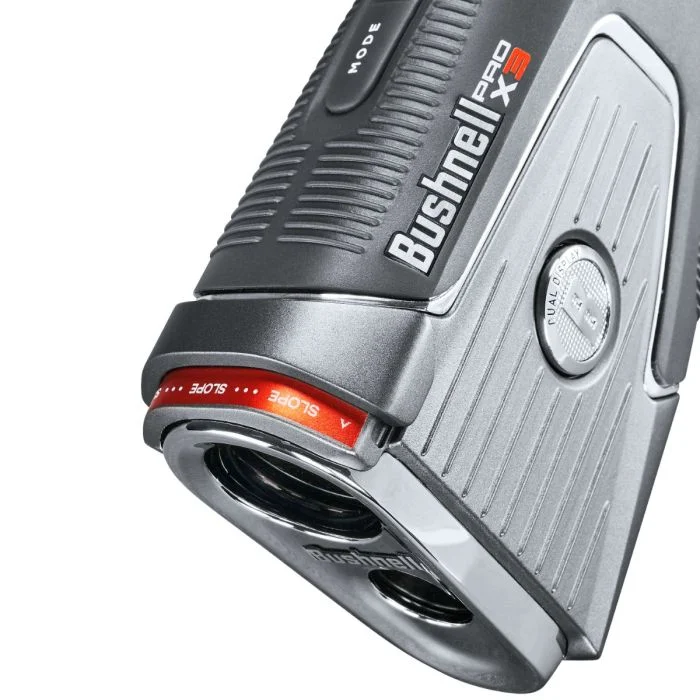
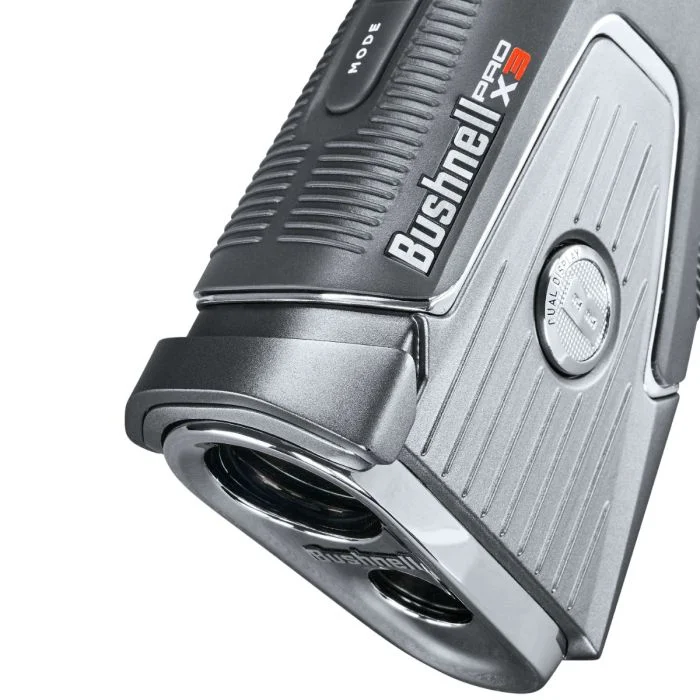
Slope Off Indicator
There is a physical switch that designates when slope is turned on/off.
An external RED ring with the word “slope” is displayed when slope is enabled.
The external ring is gray with no words displayed when slope is disabled.
This is perfect for confirming the setting to you (and your playing partners).
Accuracy
The Bushnell Pro X3 rangefinder is accurate to within +/- 1 yard at a range of 600 yards
This means you will get consistently accurate readings no matter the distance.
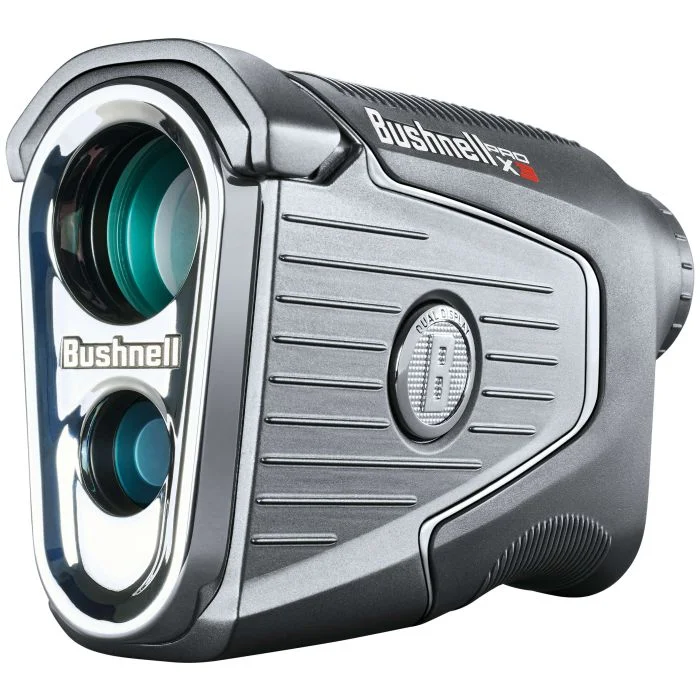
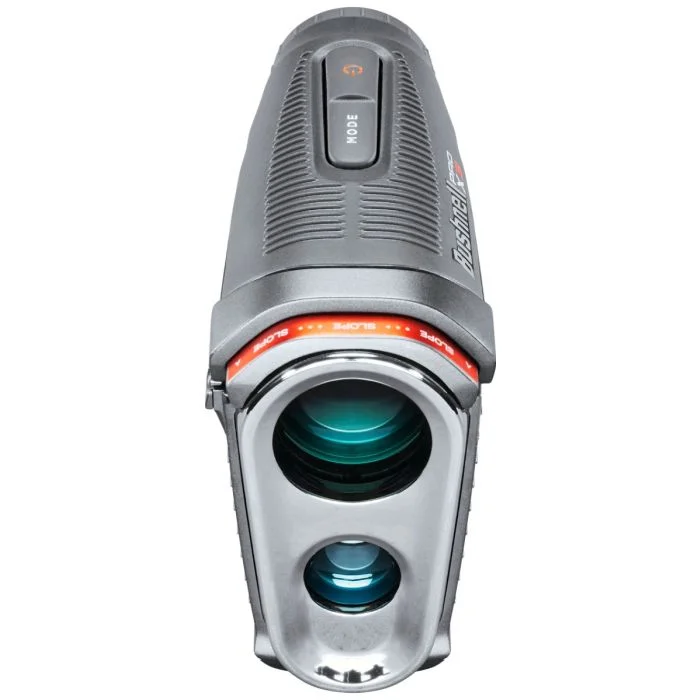
Optics
The Bushnell Pro X3 rangefinder has good optics. The rangefinder can track targets at 600 yards. You will never use that range, but it means it will have no problem at 300 yard targets.
It is not as far as other rangefinders, such as the Callaway ProXS, but it is still really good.
In addition, it has a external manual focus ring (on the viewfinder) to quickly adjust the focus to your eyes and conditions.
RANGEFINDER OPTICS & DISPLAY The display on a laser rangefinder is typically separate from the optics and is used to present the measured distance to the target. The optics on a laser rangefinder are used to gather light from the target and focus it onto the laser detector, which is responsible for measuring the distance to the target. The optics typically consist of a series of lenses and prisms that are used to focus the laser beam and improve image clarity. The quality of the optics can have a significant impact on the accuracy and overall performance of the rangefinder.
Display
The Bushnell Pro X3 Rangefinder‘s internal display (meaning the numbers that are displayed when you look through the viewfinder) is Dual Red & Black LCD. This allows you to change the display for better visibility in low light conditions.
LCD displays are not as good as OLED displays but are still a standard in the industry.
Read more about LCD vs OLED displays in How Golf Rangefinders Work. This may help you decide just how important this feature is to you.
Hint: we highly recommend OLED
What’s In The Box
- Bushnell Pro X3 Rangefinder
- Premium Carrying Case
- Washable Micro-fiber cloth
- 1 CR2 Battery
- Quick Start Guide
Alternative Rangefinders
If you still can’t find the right match, please see our post on The Best Golf Rangefinders With Slope for more options.
Our recommendation would actually be to consider the Callaway ProXS rangefinder. For $150 less, you get some features that are better than the X3.
However, you lose out on the environmental slope calculations, and home altitude if those are important to you.
| FEATURE | Callaway ProXS | Bushnell Pro X3 |
|---|---|---|
| Price | $449 | $599 |
| IPX Rating | IPX4 | IPX7 |
| Accuracy | +/- .5 yards | +/- 1 yard |
| Display | OLED | LCD |
| Pin Lock | P.A.T | Pinseeker |
| Range | 1,200 yards | 600 yards |
| Environmental Factors | No | Yes |
| Home Altitude | No | Yes |
Additionally, read on for some interesting hybrid options that you may not have considered.
Laser Rangefinders vs GPS Devices
Whether you want a rangefinder or GPS device, there is no wrong answer as to which device is better. Many players carry both devices to get the advantage from each.
There are a few key advantages that a golf laser rangefinder has over a golf GPS device.
First, laser rangefinders are generally more accurate than GPS devices. This is because they use laser technology to measure distance, while GPS devices use satellite technology. This means that laser rangefinders can be more accurate in measuring distances to the flag, hazards, and other objects on the course.
Second, laser rangefinders don’t require a satellite connection in order to function. This means that you can easily carry a laser rangefinder with you on the course, and don’t have to worry about losing a GPS signal. Occasionally satellite reception might be limited which leads to inaccurate yardages.
On the other hand, GPS devices can be attached to your bag, or worn on your wrist providing real-time yardage updates. With GPS, you always see a visual of the hole with yardages to hazards, the green and any target you wish.
Hybrid Laser Rangefinder/GPS
Manufacturers also realized the tradeoff between GPS devices and laser rangefinders so they came up with an innovative idea; laser rangefinders with GPS functionality built-in.
These rangefinders incorporate GPS in (2) different ways:
- External display built into the rangefinder
- Internal display with overlaid visuals in the viewfinder
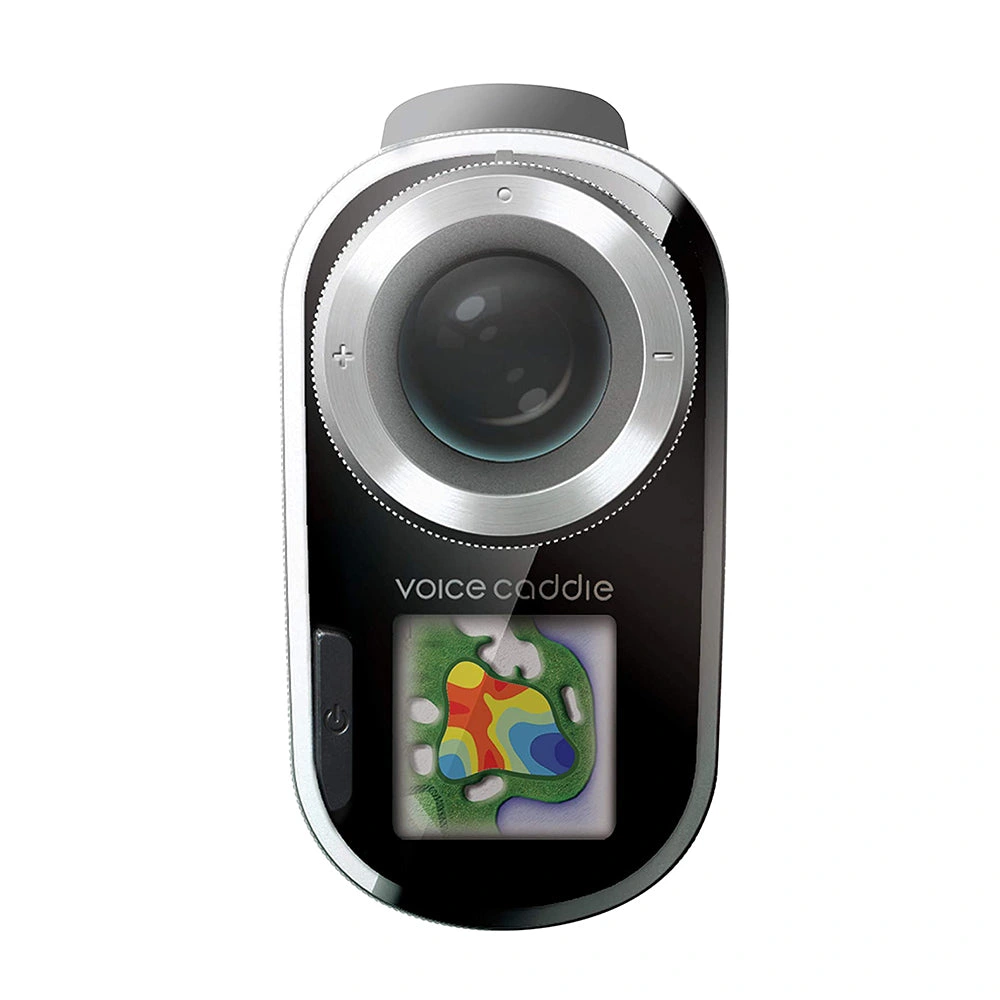
External Display
This innovative design incorporates an external display built right into the rangefinder body.
You get the benefits of a GPS unit and rangefinder with slope. This means hole overviews, hazards, layup distances, green views and more.
Some units also include the undulations on greens.
A Unit incorporating this design:
Internal Display
This design is different in that the GPS features are seen when looking through the viewfinder.
The visuals are overlaid on the actual hole you are looking at.
This shows you what hazards are in play around where you are aiming (via the range arc).
Units incorporating this design are:
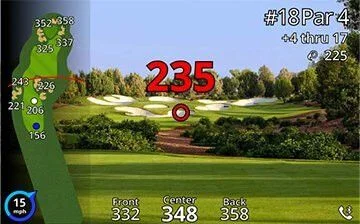
Pairing a Rangefinder with a Launch Monitor
When you pair a launch monitor (such as the Bushnell Launch Pro) with a laser rangefinder, you are eliminating variables from your golf game–which is good! A launch monitor can help you dial in your exact distances for each club.
When you pair that with the on-course precision of a laser rangefinder, you take the guesswork out of each shot. You can then focus on the target and executing your best swing.
So, if you’re serious about improving your golf game, a laser rangefinder with slope is worth considering. By helping you get a better understanding of the course and making it easier to execute shots, a rangefinder can help you take your game to the next level.
Pair this with a launch monitor where you can dial in your exact distances, and you will be playing the best golf you are capable of.
See our page on Launch Monitors for reviews of the best models.
Learn How To Choose The Best Golf Rangefinder
If you still need help, read our comprehensive article How to Choose The Best Golf Rangefinder. We do an in-depth dive into rangefinder features, how they work, how you can identify what type of rangefinder you need, and ultimately how to choose the best golf rangefinder for yourself.
Conclusion
The Bushnell Pro X3 rangefinder is their top-of-the-line laser rangefinder with slope. It include...
The Bushnell Pro X3 is a great laser rangefinder with slope. It is Bushnell’s #1 laser rangefinder and has some features that best other rangefinders in this class (such as the environmental & altitude slope calculations).
It also lacks in a few key areas such as having an LCD display, and is not the most accurate rangefinder available (the Callaway ProXS is).
But, it is #1 on the PGA Tour for a reason and you can’t go wrong with the X3!
Good luck and have fun on the links!
Frequently Asked Questions
Founder of TheLuxeGolf, I am an avid golfer with a single-digit handicap with over 20 years of experience playing golf. I use my analytics education from Georgia Tech to help me research and write the best articles on luxury & premium golf products! I love how analytics has seeped into every aspect of golf and how it can be used to provide incredible insights into your game. In my time, I’m either writing about golf, watching golf, or playing golf!



